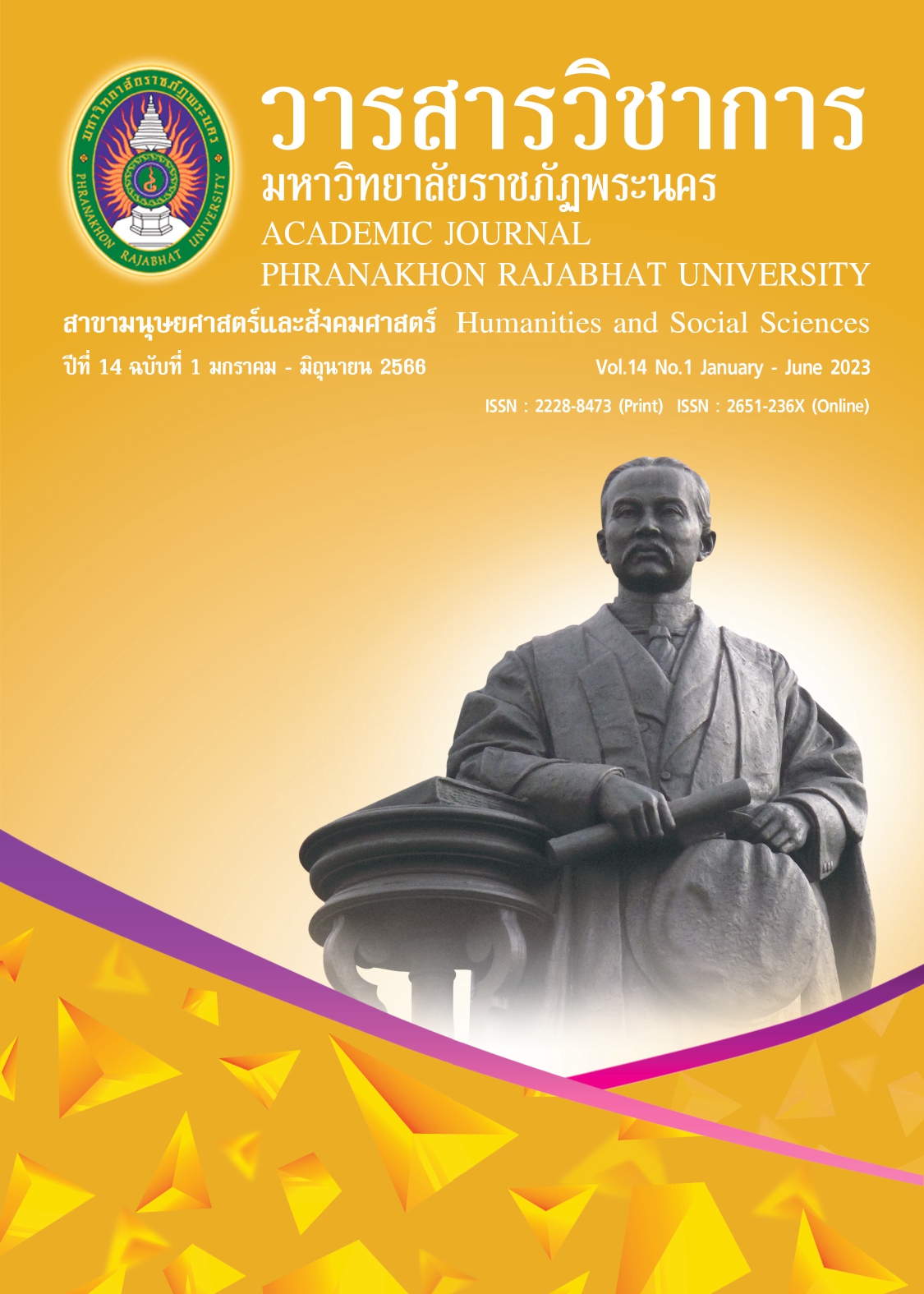APPLYING DESIGN THINKING THEORY IN ENGLISH LANGUAGE CLASS TO ENHANCE COMMUNICATION SKILLS IN CHILDHOOD LEARNERS
Keywords:
Visual Language, Design Thinking, English Communication SkillAbstract
The article concerned the development of English learning experience by applying Design Thinking method approach into English Classroom to enhance English communication skills in childhood learners using hands-on learning activity for developing skills and artistic experience through art creation. The integration of art, music, and nature was brought into the English class in childhood level. With these creative activities, the students could learn with enjoyment and be able to apply knowledge in accordance with their aptitude. By integrating Design Thinking and language knowledge with technology from creative media, it helped in transforming knowledge into a concise learning activity which was a new learning perspective. Interested parties could use this case study to develop communication skills in childhood learners of English as a preparatory step towards effective communication with people of different languages and cultures. Consequently, English remains a medium to explore various dimensions of the world and inspire learners to discover new learning resources from different languages and cultures.
References
Achariyakul, K., Chidpitak, N., & Chansawang, R. (2017). English vocabulary learning
through game design using Design Thinking techniques. Journal of
Educational Technology Development and Exchange (JETDE), 10(1),
-89. (In Thai)
Brown, H. D. (1993). Georgetown University Roundtable on Languages and
Linguistics 1993. After Method: Toward a Principled Strategic Approach to
Language Teaching. San Francisco State University.
Carroll, M. (2010). “Stretch, dream, and do-a 21st century design thinking & STEM
journey,” Journal of Research in STEM Education, 1(1), 59-70.
Charosky, G., L. Leveratto, L. Hassi, K. Papageorgiou, J. Ramos-Castro, and R. Bragós. (2018). “Challenge-Based Education: An Approach to Innovation through Multidisciplinary Teams of Students Using Design Thinking.” Paper presented at the Technologies Applied to Electronics Teaching Conference (TAEE), Tenerife, Spain, June 20–22.
Douglass, H. (2016). Science and Children. Washington, 53, (9), 69-75.
Henriksen, D. (2017). Creating STEAM with design thinking: Beyond STEM and arts
integration. The STEAM Journal, 3(1), 11.
Institute of Design Stanford. (2019). An Introduction to Design Thinking (PROCESS GUIDE). Retrieved from https://web.stanford.edu/~mshanks/MichaelShanks/files/509554.pdf. [2022, 12 Oct.]
Kriangchaiporn, N., & Sirivianos, M. (2019). Factors influencing English language anxiety in Thai high school students. International Journal of Advanced and Applied Sciences, 6(1), 43-48. (In Thai)
Phuriwikrai, K. (2019). We are all designers of our own lives. Retrieved from https://www.the101.world/designing-your-life-workshop/ [2018, 25 Oct.]
Rauth, E. Köppen, B. Jobst and Meinel. C. (2010). Design Thinking: An Educational Model towards Creative Confidence. Retrieved from file:///C:/Users/Nicky/Downloads/DesignThinking AnEducationalModeltowardsCreativeConfidence.pdf
Suhaila, C. N, and Abdul M. A. K. (2021). Design thinking mindset to enhance education 4.0. competitiveness in Malaysia. International Journal of Evaluation and Research in Education (IJERE), 10 (2), 494~501.
Watson, J., & Hill, A. (2015). Dictionary of media and communication studies. Bloomsbury Publishing: USA.
Wutthisinchai, S. & Stopps, P.J. (2011). An analysis of factors affecting the English reading comprehension of Mattayomsuksa 5 Students in Amphur Mueang, Lampang Province. Bangkok: Institute for English Language Education Assumption University. (In Thai)
Downloads
Published
How to Cite
Issue
Section
License
Copyright (c) 2023 Academic Journal Phranakhon Rajabhat University

This work is licensed under a Creative Commons Attribution-NonCommercial-NoDerivatives 4.0 International License.
"บทความวิชาการในวารสารฉบับนี้ ถือเป็นความรับผิดชอบของผู้เขียนเท่านั้น"
สงวนลิขสิทธิ์ตามพระราชบัญญัติลิขสิทธิ์




